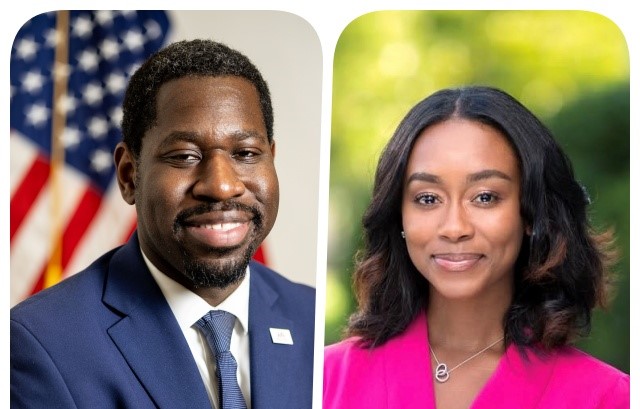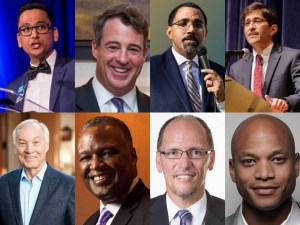By Megan Sayles
AFRO Staff Writer
msayles@afro.com
When thinking about expanding your customer base, there are more possibilities than just individuals and other companies. The federal government is one of the most expansive, consistent customers in the country. In fiscal year 2023, it spent nearly $759 billion on contracts, awarding a record-breaking $178.6 billion to small businesses.
Though breaking into the federal procurement space may seem daunting—complex paperwork, precise guidelines and fierce competition— help is available.
“The United States government is the largest purchaser of services and goods in the world,” said Eric Morrissette, former deputy under secretary for minority business development.

Appointed by the Biden-Harris administration, Morrissette previously led the Minority Business Development Agency (MBDA), an office singularly focused on advancing the growth and competitiveness of minority-owned enterprises (MBEs).
He explained that the agency’s job is to assist entrepreneurs at all stages of their business. If a business owner wants support in pursuing government contracts, MBDA has 130 centers across the country that provide free services, including finding procurement opportunities, solicitation analysis, bid and proposal preparation and certification assistance.
It can also support current contractors in expanding their work.
“There are people who have been a part of the contracting space, providing supplies to the federal government for generations, and it is imperative that we create a space for MBEs to enter those spaces and create intergenerational wealth for themselves, their families and their communities,” said Morrissette. “That’s not only our responsibility as a federal agency but it’s also our responsibility as a government.”
According to Morrissette, there is a $7.1 trillion opportunity gap for MBEs, which represents the economic growth they could experience if they had equal opportunities compared to their counterparts. He advised minority businesses to open themselves up to procurement, research the landscape as it pertains to their niche and determine how they can stand out from competitors.
He also recommended teaming up with another small business on a contract if an entrepreneur is strapped for capacity.
“If you’re interested in competing for some of these procurement opportunities or if you’re not even sure where those procurement opportunities exist, there is an agency dedicated to helping you understand that. Largely, we have a footprint in every state in this country and every territory,” said Morrissette. “As we continue to make opportunities available to Black and Brown businesses, it’s our job to help you achieve wealth. Push us to do that. Come to us and receive our support.”

Taelor Salmon, CEO of the TJS Group, has years of experience navigating the federal procurement ecosystem as a minority business enterprise. Her company, based in D.C., is a government contracting firm that primarily provides facilities maintenance and IT security services.
However, her introduction to federal procurement began before TJS Group. Her family also owns a government contracting company, and she spent two years learning the ropes after graduating from college.
“If you have a good service or product, don’t shy away from the government,” said Salmon. “These are pretty long contracts, and they can be very substantial.”
Salmon provided several tips for MBEs looking to pursue federal contracts:
- Have a business plan and use it to craft a capability statement. These documents should make clear the area of support you can provide and the value you can bring to the government as your customer.
- Familiarize yourself with government agencies and build relationships. Attend industry days, foster connections with the Small Business Administration (SBA) and network with peers that are involved in the procurement landscape to help you position your business for bids.
- Use sam.gov, the government’s system of award management, to register your business and find contract opportunities.
- Differentiate yourself from competitors. This could include obtaining certifications as an MBE, service-disabled veteran-owned small business (SDVOSB), women-owned small business (WOSB) or HUBZone business, a designation given to firms located in historically underutilized areas. It could also include securing industry-specific safety, environmental and security certifications.
Salmon believes federal procurement can provide businesses with longevity and stability. Once a contract is won, she said communication is key. MBEs must understand the particulars of the needs of the government on contracts and ensure that their employees have a full understanding of the expectations as well.
“If you fail, you fail forward. You’re taking a chance. There’s so many positives that come with it because you learn,” said Salmon. “There are lessons. You have the intel to do better when you try again the next time.”
The post Tapping into federal procurement: How to position your business to win contracts appeared first on AFRO American Newspapers.











